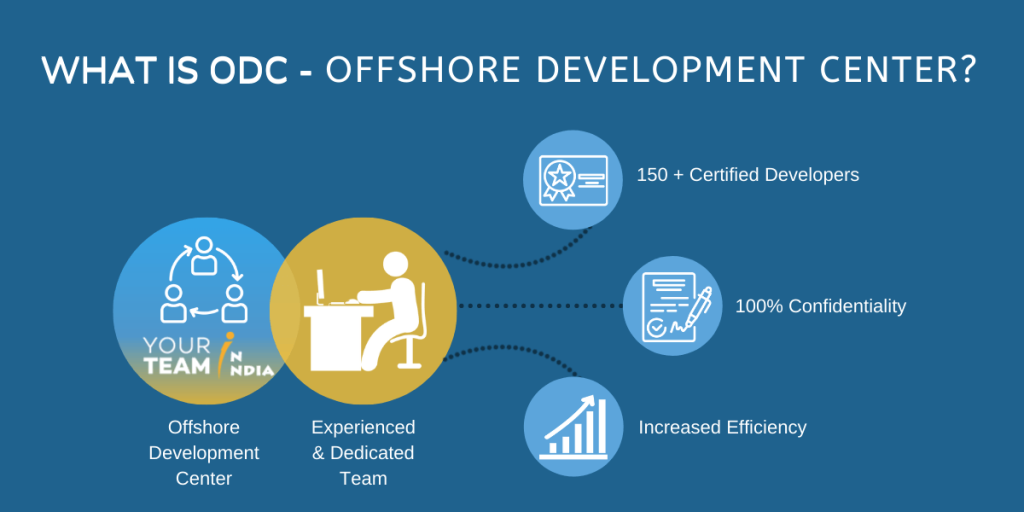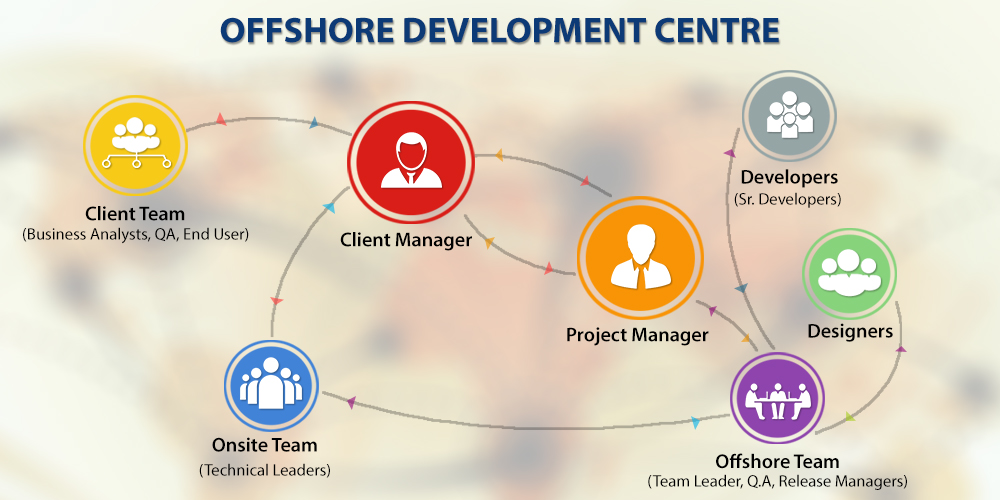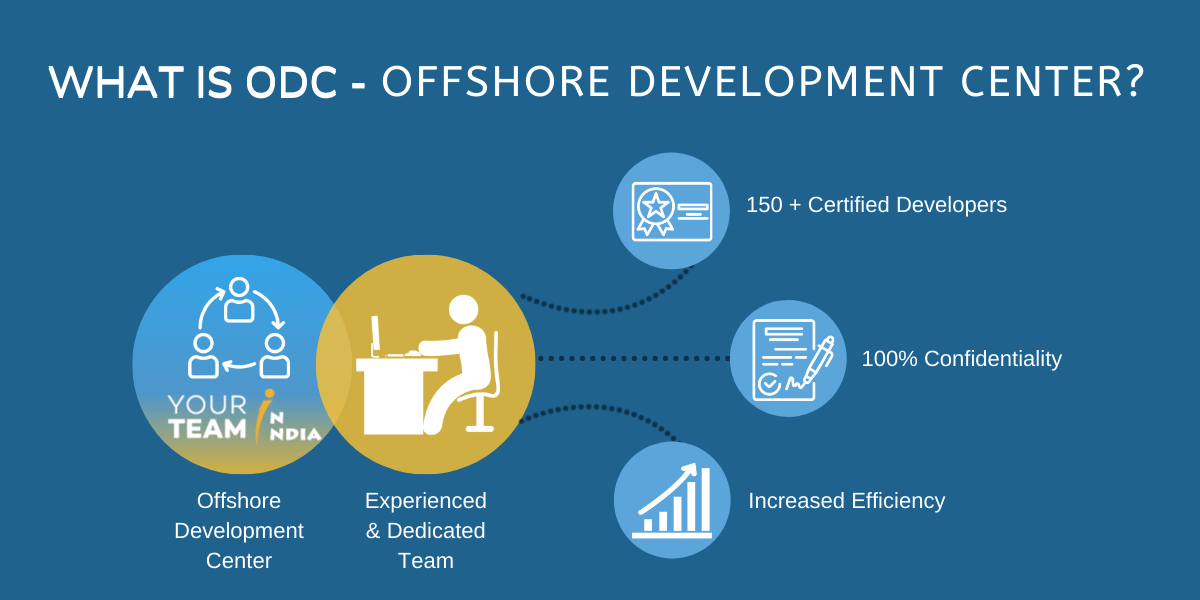What does offshore mean by IT? The term ‘offshore’ in IT refers to the practice of outsourcing or delegating various information technology operations, services, or tasks to external entities located in different countries. This often involves leveraging global talent, accessing specialized skills, and cost-effective solutions, and offering companies opportunities to expand their workforce and services beyond their domestic boundaries
What does Offshore mean ?
What does offshore mean? Offshore in IT refers to the practice of outsourcing certain aspects of a company’s information technology (IT) operations or software development to another country. This is often done as a cost-saving measure, as labor and operational expenses can be significantly lower in other parts of the world.

Understanding Offshore
Offshoreteam operations within the IT sector encompass a range of functions, including software development, technical support, data entry, and call center services, carried out by individuals or contracted teams situated beyond the borders of the company’s home country.
What does offshore mean? The term “offshore” refers to the geographical location of these operations, often in countries situated far from the company’s central headquarters, signifying a physical distance comparable to being off the coast or out at sea. These locations typically span across countries such as India, China, the Philippines, and various Eastern European nations
Types of Offshoring
Conventional offshoring involves the practice of contracting out IT operations or services to an external vendor situated in a different country. This encompasses tasks like assigning a company to manage software development, technical support, and other IT-related responsibilities
Advantages and Disadvantages of Offshore Investing
Advantages
- Cost savings: As mentioned earlier, one of the main reasons for offshore investing is the potential cost savings. Labor and operational costs can be significantly lower in other countries, making it an attractive option for companies looking to reduce expenses.
- Access to specialized skills: Offshoring allows companies to tap into a larger pool of talent and expertise that may not be available locally. This can be especially beneficial for niche or specialized IT projects that require specific skill sets.
- Time zone advantages: By having teams located in different time zones, companies can provide around-the-clock services and support to their clients. This can lead to increased efficiency and faster project turnaround times.
- Global expansion opportunities: Offshoring can also open up new business opportunities in the global market. By having a presence in different countries, companies can reach new customers and expand their operations internationally.
Readmore: What is offshore staff?

Disadvantages
- Communication barriers: Working with teams located in other countries can present challenges when it comes to communication. Language barriers, cultural differences, and time zone differences can all impact effective communication and collaboration.
- Quality control issues: Offshoring IT operations means working with teams that may have different standards and processes than what a company is used to. This can lead to inconsistencies in product or service quality.
- Data security risks: Offshoring also raises concerns about data security, as sensitive information may be shared with individuals in other countries. Companies must ensure proper measures are in place to protect their data from potential breaches.
- Legal and regulatory compliance: Working with teams in other countries means navigating different legal and regulatory frameworks, which can be complex and time-consuming. Companies must ensure they are following all necessary laws and regulations to avoid any potential legal issues.
Additional Considerations
- Choosing the right offshore partner: One of the most important factors in a successful offshoring strategy is choosing the right partner. Companies should carefully research potential partners and consider factors such as cultural fit, expertise, and track record before making a decision.
- Managing expectations: Offshoring can be challenging, and it’s important for companies to manage their expectations. It may take time to see the benefits of offshoring, and there may be some initial setbacks or challenges along the way.
- Investing in training and resources: To ensure effective communication and collaboration with offshore teams, companies may need to invest in training programs or resources to help bridge any cultural or language gaps.
- Building a strong working relationship: Offshoring requires trust and open communication between all parties involved. Companies should make an effort to build a strong working relationship with their offshore partners, as this can lead to better teamwork and ultimately, better results.
- Constant evaluation and improvement: Offshoring is not a one-time process but an ongoing journey. Companies should regularly evaluate their offshoring strategy and make necessary improvements or adjustments to ensure it continues to meet their needs and goals.
- Consider cultural differences: When working with offshore teams, it’s important to be aware of any cultural differences that may impact communication or work styles. Companies should make an effort to understand and adapt to these differences to foster a more productive and harmonious working relationship.
- Legal considerations: Offshoring can also come with potential legal issues, such as intellectual property protection and data privacy laws. It’s crucial for companies to thoroughly research and comply with all necessary legal requirements to avoid any legal complications or risks.
- Communication and project management tools: Effective communication and project management are key to successful offshoring. Companies should invest in reliable tools and systems that facilitate seamless communication, task tracking, and collaboration with their offshore teams.

Readmore: How to Hire an Offshore Development Team?
What Does It Mean to Work Offshore?
What does offshore mean? Offshoring refers to the process of a company contracting work or services to be performed by an external party located in a different country. This can involve tasks such as manufacturing, customer service, IT support, and more.
Working offshore typically involves utilizing the expertise and lower labor costs of another country to complete certain tasks or projects for a company. It has become increasingly popular among businesses of all sizes, as advancements in technology have made it easier to connect and collaborate with offshore teams.
Offshoring offers many potential benefits, such as cost savings, access to specialized skills and talent, increased efficiency, and expanded global reach. However, it also comes with its own set of challenges and considerations that companies must carefully navigate to ensure a successful offshoring experience.
Conclusion
What does offshore mean? Offshoring can be a valuable strategy for businesses looking to optimize their operations and expand their capabilities. It allows companies to tap into the expertise and resources of another country, while also potentially reducing costs. However, it’s essential for companies to thoroughly research and plan before embarking on an offshoring journey, taking into account factors such as cultural differences, legal considerations, and communication strategies. With careful planning and implementation, offshoring can be a powerful tool for companies seeking to gain a competitive edge in the global market.



